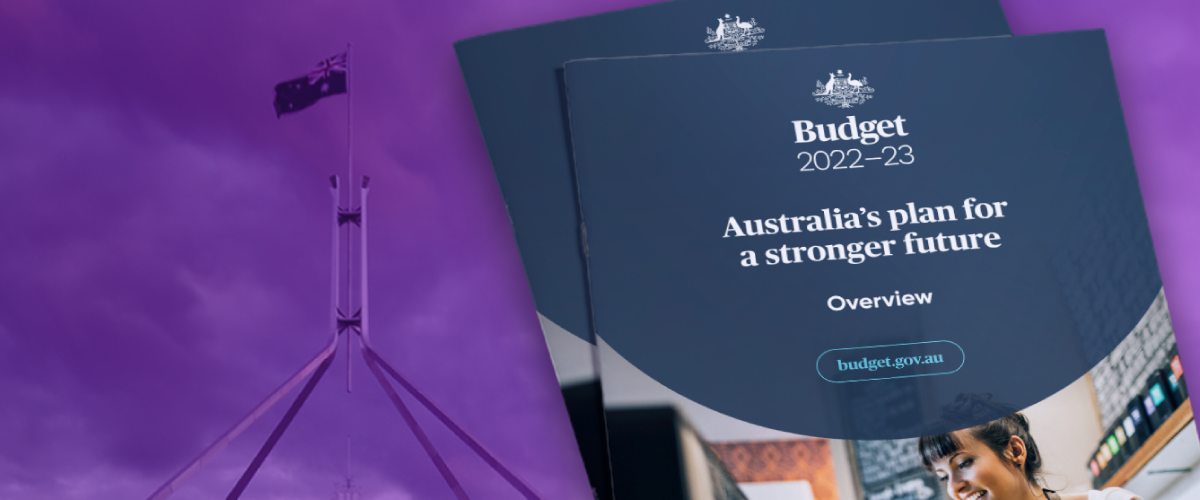Tue 29 March 2022
Hospital Pharmacists welcome hospitals and health funding, but future workforce needed to implement
The Society of Hospital Pharmacists of Australia (SHPA) has welcomed the Federal Government’s pre-election budget centred on easing cost-of-living pressures, while cautioning announced expenditure in hospitals and pandemic preparedness will have limited impact without developing Australia's current and future workforce of Hospital Pharmacists.
SHPA says while the Federal Budget 2022-23 sees investment in aged care, COVID-19 medicines and care in the community, it is a missed opportunity to learn the lessons of the pandemic and ensure Australia’s backbone of expert healthcare professionals is fully supported, appropriately remunerated and managed under national workforce plans.
SHPA Chief Executive Kristin Michaels says it is important ‘cost of living’ commentary is viewed through a healthcare lens.
‘With twelve less scripts for concessional patients to reach the PBS Safety Net threshold, and two less scripts required for general patients, this is another step in maintaining the accessibility and affordability of this revered pillar of Australia’s healthcare system.
‘Managing almost a quarter of PBS expenditure, Hospital Pharmacists are crucial to its sustainability and will play a key role as $2.4b was committed over five years for new PBS medicines, subsidising access to highly specialised and complex medicines initiated and supplied in the hospital setting, including medicines to treat breast cancer, advanced colorectal cancer, cystic fibrosis and COVID-19.
‘As we work to minimise COVID-19 hospitalisations, SHPA welcomes $6m to extend COVID Community Care Pathways to support effective coordination of care in the community, where Hospital Pharmacists are intimately involved in Hospital in The Home care models to care for patients and keep them out of hospital.
‘Hospital Pharmacists also welcome the advance purchases of vital medicines to treat COVID-19 for the National Medical Stockpile, the majority of which are administered in hospitals by Hospital Pharmacists.’
Ms Michaels says almost $1b to extend the National Partnership on COVID-19 Response, coupled with multifaceted spending on hospitals and aged care, underscores the importance of developing a National Pharmacy Workforce Plan, a key election priority for the Hospital Pharmacy sector, who are experiencing recruitment challenges all across Australian hospitals, both in metropolitan and regional areas.
‘Whilst the investment into the medical workforce in Budget 2022-23 is great news for our medical colleagues, at the same time, we must look ahead and fund the training and development of expert pharmacists, and plan the Hospital Pharmacy roles Australia needs, to safely and fully realise the benefit of these investments.
‘In the short term, too, the need is urgent. Last week’s Australia Medical Association (AMA) Public Hospital Report Card 2022 noted emergency services at capacity and unnecessary delays to elective surgeries, which continue to affect the availability of hospital beds as we face the winter COVID-19 and influenza season.’
Ms Michaels says Hospital Pharmacists stand ready at the frontline of Australia’s pandemic preparedness, welcoming the Federal Government’s partnership with the Victorian Government to support Moderna’s new mRNA vaccine manufacturing facility.
‘SHPA’s leading work on medicines shortages the last few years has demonstrated the risks that come with limited sovereign capability to produce and manufacture medicines on our own shores, and the establishment of this new facility is to be commended.
‘Having supported the establishment of over 500 vaccine clinics in major hospitals from Phase 1a in early 2021, our Hospital Pharmacy workforce has the expertise and experience to drive future rollouts, if and when they are required to keep Australians safe.’


